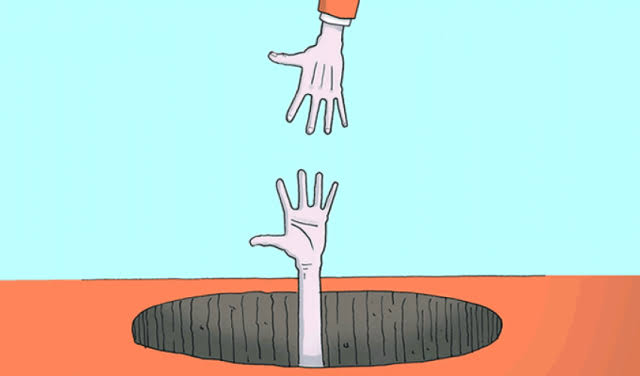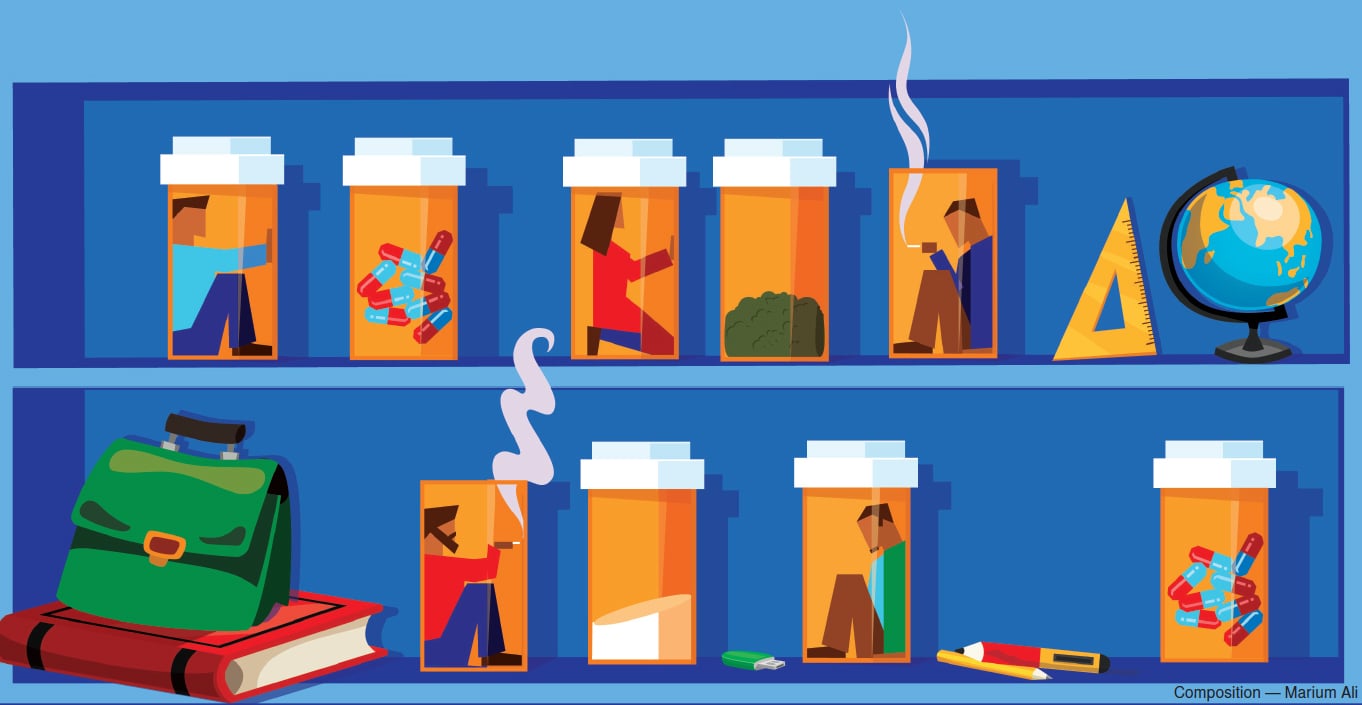6 years ago
·
Admin ·
Comments Off on Overcoming Addiction & Drug Abuse
Addiction disorders are a group of disorders that can cause physical
and psychological damage. Receiving treatment is essential for breaking the
cycle of addiction.
Drug addiction, also called substance use disorder, is a dependence
on a legal or illegal drug or medication. There are many reasons why drug usage
soon gets changed to drug abuse. At a very basic level this happens because the
person concerned feels a desperate need to deal with stress, to get a
momentary high or to just ‘fit in’ with his or her peers, as happens in the
case of youngsters. It soon reaches a stage where this need becomes much more
than other needs in life and the person begins to believe their survival
depends on those drugs.
The most major impact of drug abuse is on the brain, which
consequentially affects every other aspect of life of the person addicted
to drugs. Severe drug and alcohol addictions do not only destroy an
individual’s body but also have an effect on their surroundings and society.
Drug addiction symptoms or behaviours include, among others:
- Feeling that you have
to use the drug regularly — this can be daily or even several times a day
- Having intense urges
for the drug
- Over time, needing
more of the drug to get the same effect
- Making certain that
you maintain a supply of the drug
- Spending money on the
drug, even though you can’t afford it
- Not meeting
obligations and work responsibilities, or cutting back on social or
recreational activities because of drug use
- Doing things to get the
drug that you normally wouldn’t do, such as stealing
- Driving or doing
other risky activities when you’re under the influence of the drug
- Focusing more and
more time and energy on getting and using the drug
- Failing in your
attempts to stop using the drug
- Experiencing
withdrawal symptoms when you attempt to stop taking the drug
Remember, the opposite of addiction is connection. All substances of
abuse tend to isolate the user from his/her connections. Every addict is alone
in his/her addiction.
Drug addiction can cause serious, long-term consequences, including
problems with physical and mental health, relationships, employment, and the
law.
You may need help from your doctor, family, friends, support groups
or an organized treatment program to overcome your drug addiction and stay
drug-free.
Prevention is the best bet. In fact, it is one affliction that can
be easily prevented according to medical experts and practitioners. Prevention
programmes involving entities such as families, schools and the immediate
communities are important in this regard. Media – especially the entertainment
segment – also needs to understand its role in this context and play a positive
role by resisting the urge to earn millions by glorifying drug abuse.
Sustained treatment is the only option for people who have
already gone down the road of drug abuse and are highly into it.
The treatment program should be based, not merely, on de-coupling
the addict from the drug or his/her addiction, but should also concentrate on
helping the addict to reappraise his/her past, help develop coping skills to
deal with stress and boredom and to increase his/her self-esteem. Family
therapy must be an integral part of a treatment program.
Normally rehabilitation lasts from nine months to a year, sometimes
more, depending on the prognosis of the patient and intensity of drug abuse.
The treatment program should be a holistic one and help the
chemically dependent addict to better all four planes of him, i.e. physical,
mental, social and spiritual.
Substance-related disorders are chronic, complex diseases that
require prolonged, intensive treatment. The type of substance involved and the
severity of the addiction will dictate the course of treatment
Treatment often begins with detoxification, using medicine to reduce
withdrawal symptoms while a substance leaves the system.
Different types of behavioural therapy and counselling can also
support treatment, helping to deprogram certain behaviour and circumstances
related to drug use.
If your drug use is out of control or causing problems, get help.
The sooner you seek help, the greater your chances for a long-term recovery.
Talk with your primary doctor or see a mental health provider, such as a doctor
who specializes in addiction medicine or addiction psychiatry, or a licensed
alcohol and drug counsellor.
Why Choose Us
We measure our progress by the number of people in whom we restore
the hope of a healthy tomorrow. Our doctors are highly skilled, experienced,
compassionate and will be there when you need them most. We have the best
talent and a team of best psychiatrist and psychologist in Noida.
We understand the decision to seek psychiatric/ psychological care
can be stressful and is just not easy. However, be assured as, at Pathfinders
Clinic, you will be treated with sensitivity and respect to meet your
individual, unique needs.
Book an Online Appointment
Pathfinders Clinic, through its team of mental health professionals,
offers proven and latest medical advances in an environment that promotes mental
health and enhances a sense of wellness.
Pathfinders Clinic provides online appointment facility to its
patients and also for those who wish to seek a second opinion from our mental
health experts.








